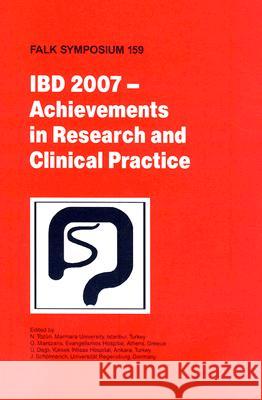IBD 2007 - Achievements in Research and Clinical Practice » książka
IBD 2007 - Achievements in Research and Clinical Practice
ISBN-13: 9781402069864 / Angielski / Twarda / 2008 / 297 str.
The recent increase in the incidence of inflammatory bowel disease (IBD) and especially of Crohn's disease is not a myth. Much speculation has been made regarding the effect of some known and some unidentified risk factors which might account for this steady rise but one cannot deny the contribution of the faster and more effective spread of information between scientists and the development of more sophisticated diagnostic techniques which enable us to categorize the disease in a more comprehensive way. Inflammatory bowel diseases come to the attention of the physician with different faces and different scenarios and even the same patient may show up with different patterns in various regions of the world. When the clinical course seems not to be going well despite appropriate medications, a search for unexpected factors such as concomitant IBS, intercurrent infections and drug toxicity such as aminosalicylates should be considered. The impact of parasites, notably amoeba or giardia, and bacterial or viral infections deserve special attention in some parts of the world such as the eastern Mediterranean, North Africa, Middle East and Asia. There is no single truth regarding the recognition and management of IBD. In this regards the old dictum "there is no disease but the patient" should be the golden rule. Nowadays, more complicated Crohn's disease cases at relatively young ages are not unusual. Various clinical and extraintestinal manifestations have been seen rarely until now. The evolution of the therapeutic armamentarium is now a double-edged sword since "more drugs" may mean "more side-effects, less compliance and a more critical attitude of health authorities towards the cost of treatment." Education of the patient and the family, creation of empathy and a positive rapport with the patient and a careful analysis of confounding/contributing factors to the disease behaviour are essential elements of optimal therapy of IBD patients. This book contains the proceedings of Falk Symposium 159, entitled IBD 2007 -- Achievements in Research and Clinical Practice, held in Istanbul, Turkey, on May 4--5, 2007, where opinion leaders with worldwide reputations discuss IBD and related issues in a less well-known part of the world with respect to prevalence, disease behaviour and patient characteristics, as well as the difficulties faced in differential diagnosis and management.











